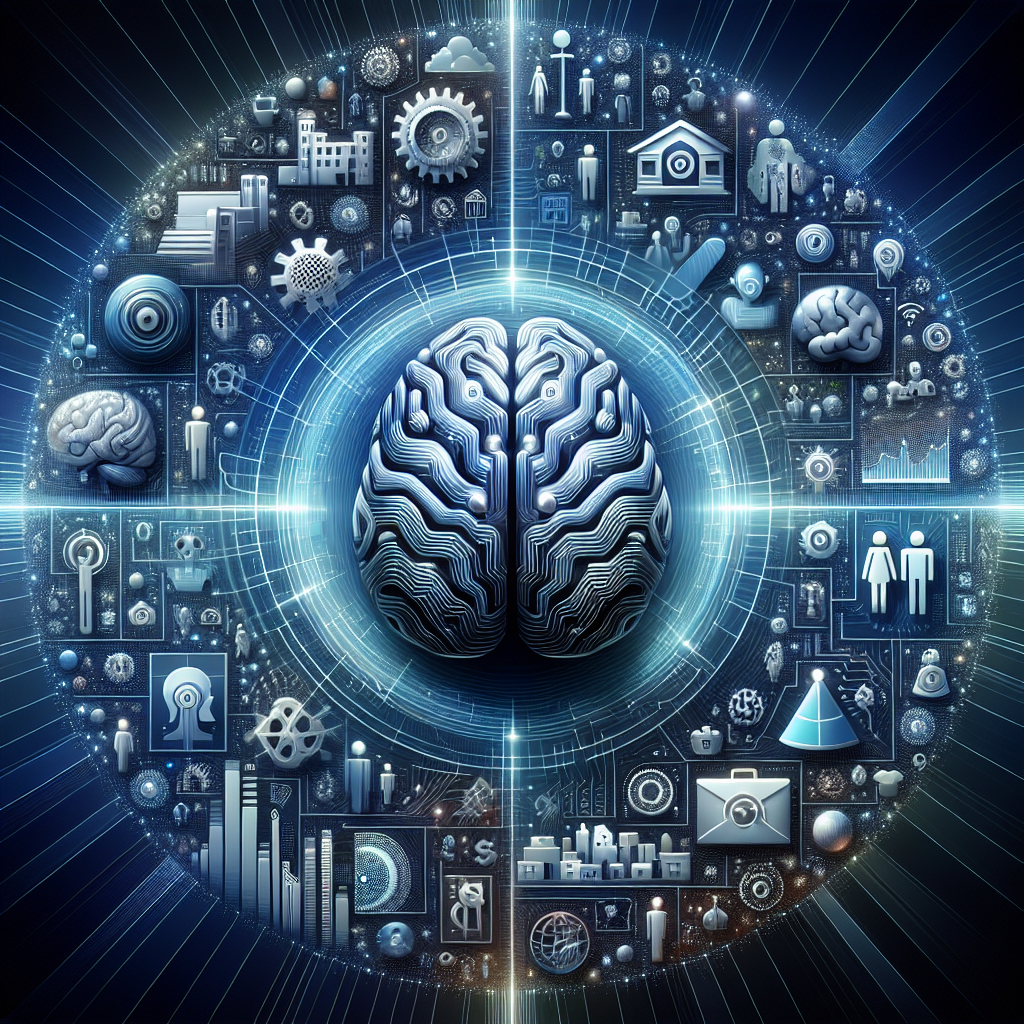Breaking Down the Impact of AGI on Society
Artificial General Intelligence (AGI) refers to a form of artificial intelligence that possesses the ability to understand, learn, and apply knowledge in a way that mimics human cognitive functions. While most of the current AI systems are designed to perform specific tasks within a narrow domain, AGI aims to achieve a level of general intelligence that is comparable to that of a human being. The development of AGI has the potential to revolutionize various aspects of society, from healthcare and transportation to education and entertainment. In this article, we will explore the impact of AGI on society and address some frequently asked questions about this emerging technology.
1. Healthcare
AGI has the potential to significantly improve the healthcare industry by enhancing diagnosis, treatment, and patient care. With its ability to analyze vast amounts of medical data and identify patterns that human doctors may overlook, AGI can help doctors make more accurate and timely diagnoses. AGI-powered robots can also assist in surgeries, reducing the risk of human error and improving patient outcomes. Additionally, AGI can help personalize treatment plans based on individual patient data, leading to more effective and efficient healthcare delivery.
2. Transportation
The development of AGI has the potential to revolutionize the transportation industry by enabling autonomous vehicles to navigate roads safely and efficiently. AGI-powered systems can process real-time data from sensors and cameras to make split-second decisions, leading to safer roads and reduced traffic congestion. Autonomous vehicles can also improve accessibility for individuals with disabilities and the elderly, providing them with greater independence and mobility. However, concerns about the ethical implications of AGI in transportation, such as liability in case of accidents, need to be carefully considered.
3. Education
AGI can transform the field of education by personalizing learning experiences for students and providing teachers with valuable insights into student performance. With its ability to adapt to individual learning styles and pace, AGI can help students achieve better educational outcomes and acquire essential skills for the future workforce. AGI-powered tutors can provide students with immediate feedback and support, enhancing their learning experience and motivation. However, concerns about the potential displacement of human teachers and the ethical implications of AGI in education need to be addressed.
4. Entertainment
AGI can revolutionize the entertainment industry by creating immersive and interactive experiences for audiences. AGI-powered systems can generate personalized content, such as movies, music, and video games, based on individual preferences and feedback. Virtual reality and augmented reality technologies powered by AGI can provide users with realistic and engaging experiences, blurring the line between the physical and digital worlds. However, concerns about the ethical implications of AGI in entertainment, such as data privacy and manipulation, need to be carefully considered.
5. Social Impact
AGI has the potential to have a profound impact on society, influencing various aspects of our daily lives and shaping the future of humanity. While AGI offers numerous benefits in terms of efficiency, innovation, and convenience, it also raises important ethical and societal concerns that need to be addressed. These concerns include the potential loss of jobs due to automation, the widening wealth gap between those who have access to AGI and those who do not, and the potential misuse of AGI for malicious purposes. As society grapples with the implications of AGI, it is essential to have open and transparent discussions about the ethical, legal, and social implications of this emerging technology.
FAQs
Q: What is the difference between AGI and narrow AI?
A: AGI refers to a form of artificial intelligence that possesses general cognitive abilities, while narrow AI refers to AI systems designed to perform specific tasks within a limited domain. AGI aims to achieve a level of intelligence that is comparable to that of a human being, while narrow AI is focused on performing specific tasks, such as speech recognition or image classification.
Q: How close are we to achieving AGI?
A: While significant progress has been made in the field of artificial intelligence, achieving AGI remains a challenging and complex task. Researchers are still working to develop AI systems that can understand, learn, and apply knowledge in a way that mimics human cognitive functions. While some experts believe that AGI could be achieved within the next few decades, others argue that it may take much longer to develop truly intelligent machines.
Q: What are the ethical implications of AGI?
A: The development of AGI raises important ethical considerations, such as the potential loss of jobs due to automation, the widening wealth gap between those who have access to AGI and those who do not, and the potential misuse of AGI for malicious purposes. It is essential to have open and transparent discussions about the ethical, legal, and social implications of AGI to ensure that this emerging technology is used responsibly and ethically.
In conclusion, the development of AGI has the potential to revolutionize various aspects of society, from healthcare and transportation to education and entertainment. While AGI offers numerous benefits in terms of efficiency, innovation, and convenience, it also raises important ethical and societal concerns that need to be addressed. As society grapples with the implications of AGI, it is essential to have open and transparent discussions about the ethical, legal, and social implications of this emerging technology to ensure that it is used responsibly and ethically.

